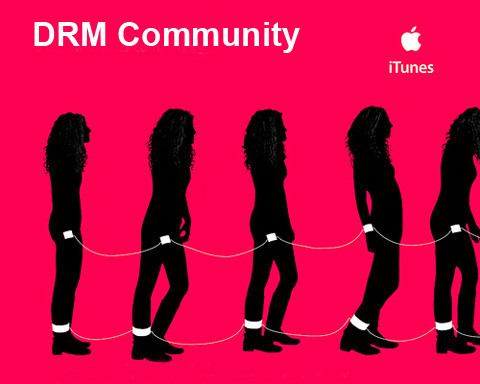A very close friend of mine works for a big company that does media streaming and movie downloads. One of our favorite discussion topics is DRMs, and how they are actually preventing the market to grow exponentially.
People are still worried (and legitimately so) today that if they buy a digital movie, they won’t be able to play it back in the future, or, more often, on any other device that the device it was purchased for.
It can sometimes be more subtle than that: a colleague recently bought a movie in HD from Amazon (for an extra fee), before being told by the automated player that the movie would only play in SD.
After discussing with people in the industry, it seems content owners (the movie studios) put even more restrictions on DRMs when it comes to HD, than SD videos. As a result, some platforms categorized as “insecure” are only allowed to play SD videos.

The definition of “secure” vs “insecure” seems to be at the hardware level: if a given platform can enable hardware-level DRMs, it is considered secure, and can therefore play HD content. Such hardware-level restriction can only be guaranteed by very closed systems such as the iPad, the Kindle fire, the PS4, etc… Basically systems where a regular user is not expected to be able to run their own code at the kernel level.
People often argue that paying for digital music finally started working when the industry decided it was ok to get rid of DRMs. That’s when iTunes did it, followed by Amazon and others, that buying mp3s became the norm (now progressively replaced by streaming). So why not do the same with movies? After all, everyone can already get most of these movies, at better quality, from blu ray sources, on the pirate bay, so what are those streaming companies (or, more precisely, their clients, the movie industry) afraid of?
When discussing this, I haven’t received many convincing answers. The best one I got though, is that those massive catalogs of movies (Netflix, iTunes, Amazon Instant Video) are extremely easy to scrape, and if a way to remove the DRMs from those movies became known, it would become much easier for people to pirate content directly on, say, Netflix, than it would be to even look for those movies on the Pirate Bay. Netflix getting their entire database downloaded/hacked even once, would be a disaster.

That is the one reason Amazon, iTunes, Netflix, etc… still keep DRMs on their systems and do not try to fight back the movie industry, even though it has been confirmed to me that the costs of implementing several DRM algorithms to fit many platforms, etc… is significant for the streaming companies.
I’ll say that arguably the same “excuse” of massive piracy would apply to their catalog of music, but haven’t received any reply about that. Maybe the technology/size of files here is different enough that my comment didn’t make sense. What do you think?
Aah, piracy… this always reminds me of that episode of the IT Crowd, enjoy the laugh!